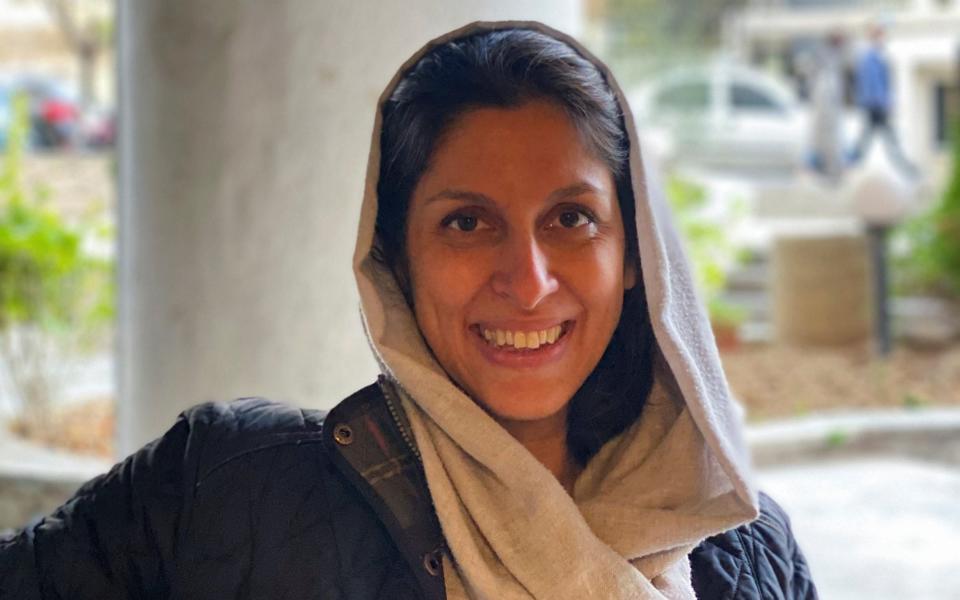Britain 'examining' how to pay £400m debt to Iran as Nazanin's freedom almost secured

- Oops!Something went wrong.Please try again later.
Britain is seeking ways to pay off the £400 million debt that Nazanin Zaghari Ratcliffe's husband believes is linked to her detention in Iran, a senior former diplomat has confirmed.
Baron McDonald of Salford, who was permanent undersecretary of the Foreign Commonwealth and Development Office until September last year, said that Britain was putting “a huge amount of imagination and effort” into ways to pay Iran the money that would not be subject to US sanctions.
Speaking on the BBC's Today programme, he said: “We acknowledge it is Iranian money and it does have to go back to Tehran...A key complication is that Iran is subject to very comprehensive sanctions, so how this money is repaid is part of the story."
Lord McDonald denied any connection between settling the debt case and Nazanin's release, even though he acknowledged Iran had linked the two in negotiations.
The process was “in the end game, the Iranian system is behaving in a typical way. Nazanin has completed her sentence. But the final moves have still to take place,” he said.

Nazanin Zaghari Ratcliffe was jailed in Iran on secret espionage charges in 2015. She was released from house arrest on completion of her sentence on Sunday, but has been ordered to attend another court hearing next week.
Richard Ratcliffe, Nazanin's husband, believes she and other dual national prisoners are being held hostage until the UK pays the debt and has expressed frustration at the refusal of British diplomats to admit to it.
Iran has for decades been seeking reimbursement from Britain for a large 1970s arms purchase that was only partially delivered.
In 2008 an international arbitration court ruled that the UK owed the money, but the two governments have been locked in an extended legal wrangle over the exact sum owed and whether or not the UK should pay interest on it. The next court hearing in the dispute is due in April.
The remarks came as a top Iranian official appeared to blame Nazanin's continued detention on former Foreign Secretary Jeremy Hunt's rejection of a proposed prisoner swap.
At a press briefing on Monday, Iranian Foreign Ministry spokesman Saeed Khatibzadeh said: “Jeremy Hunt’s hypocritical remarks do not cover up his destructive actions from a few years ago... and he knows that if his destructive actions had not taken place, [Nazanin] would have been freed a few years ago.”
The official gave no explanation as to what Mr Hunt had done, but the former foreign secretary in 2019 publicly rejected Iranian suggestions that a prisoner swap could secure Nazanin's release, which angered Tehran at the time.
Mohammad Javad Zarif, Iran's foreign minister, had suggested a swap between Ms Zaghari-Ratcliffe and Negar Ghodskani, an Iranian woman held in Australia on a US extradition warrant.
But Mr Hunt at the time said there was a “huge difference” between the two women. On Sunday he described Iran's treatment of Nazanin as “”totally and utterly inhumane“.

